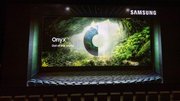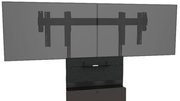DOOH Advertising
Signage network makes DOOH 24% more memorable in neuroscience study

March 6, 2023
QMS, an Australia-based outdoor media company, has announced the results of its neuroscience study, executed in partnership with Neuro-Insight, a research firm, according to a press release.
The goal of the study, which was the fifth published by the partners over the last six years, was to measure the effectiveness of urban digital street furniture in a newly installed network of QMS displays. The study showed that the furniture network resulted in a 24% increase in long-term memory encoding, along with strong scores for 'desirability,' as compared with global benchmarks. The study also exemplifies growing interest in neuroscience among digital signage and marketing professionals, including the use of neuroscience by Kevani in optimizing Los Angeles DOOH operations.
"When compared to the previous street furniture, long-term memory encoding increased further to 26%, which is a powerful testament to the impact and effectiveness of QMS' new network," Peter Pynta, CEO for Asia Pacific at Neuro-Insight, said in the release. "Desirability is uniquely suited to evaluating product design. We believe that the compelling 'desirability' metrics reflect the unique qualities of the public amenity and appeal delivered by QMS' new City of Sydney assets."
"We conducted this study with Neuro-Insight to better understand the real-world impact our new digital street furniture network delivered for brands," Christian Zavecz, chief strategy officer for QMS, said in the release. "With this robust study, we now have scientific proof that our world-class, architecturally-designed network can help advertisers reach and impact what is arguably the most sought after audiences in Australia like never before."
 ChatGPT
ChatGPT Grok
Grok Perplexity
Perplexity Claude
Claude






